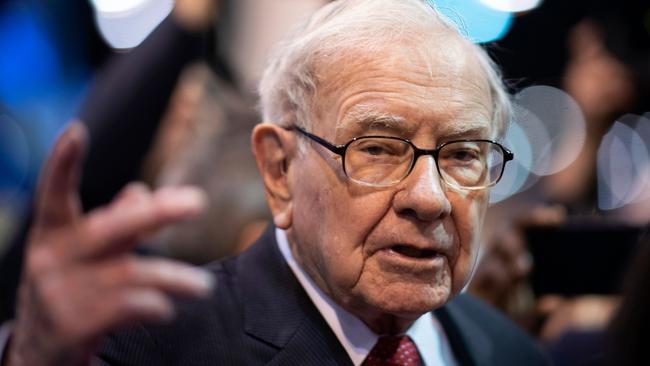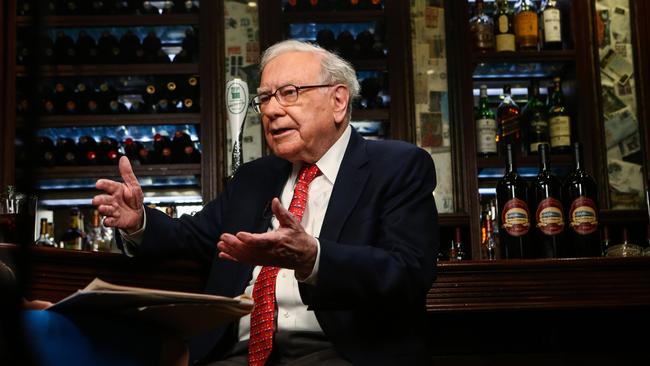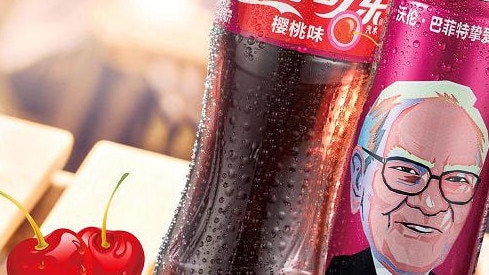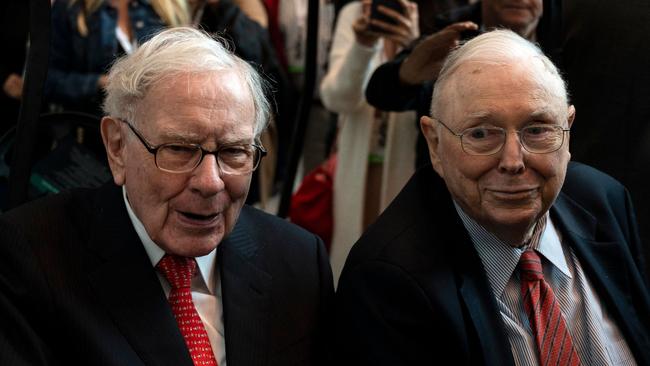Five investing lessons from Warren Buffett’s latest shareholder letter
Warren Buffett’s legendary annual letters are filled with simple rules from a life of picking winners and losers. These are highlights from his latest.

The multi-billionaire investment legend sent the first of his Berkshire Hathaway annual letters in nearly six decades without his long-time partner Charlie Munger, who passed away last November at the age of 99.
While Buffett spent some time paying tribute to Munger the “architect” of Berkshire, today a sprawling $US900bn ($1.3 trillion) conglomerate and investor, and he wrote the annual letter should continue in a regular manner.
“He (Charlie) and I were of one mind regarding our responsibilities to Berkshire shareholders,” Buffett wrote.
So here are five takeaways from the Buffett’s latest letter to released overnight to Berskshire Hathaway’s shareholders.

Quality
With names like Apple, Bank of America, Coca-Cola and Chevron, Buffett’s portfolio is built around quality.
Here he returns to the advice given to him by Munger in 1965. That is to invest in “wonderful businesses purchased at fair prices and give up buying fair businesses at wonderful prices”.
Buffett says that within capitalism, some businesses will flourish for a very long time “while others will prove to be sinkholes”. But it is harder than you would think to predict which will be the winners and losers. “Those who tell you they know the answer are usually either self-delusional or snake-oil salesmen,” says the so-called Oracle of Omaha.

The key is finding the rare company “that can deploy additional capital at high returns in the future”. Owning only one of these companies – and simply sitting tight – can deliver wealth almost beyond measure, Buffett says. Trustworthy management of the companies he invests in is also part of the equation.
“We want to own either all or a portion of businesses that enjoy good economics that are fundamental and enduring”.
Always buy low
Buffett says he has a not-so-secret weapon – having the cash resources to buy low.
“Occasionally, markets and/or the economy will cause stocks and bonds of some large and fundamentally good businesses to be strikingly mispriced”.
Buffett says Berkshire’s ability to immediately respond to market seizures with both huge sums and certainty of performance may offer an occasional large-scale opportunity.
However, he says one investment rule at Berkshire has not and will not change: Never risk permanent loss of capital.
“Thanks to the American tailwind and the power of compound interest, the arena in which we operate has been – and will be – rewarding if you make a couple of good decisions during a lifetime and avoid serious mistakes”.
Invest long
Buffett spent some time of his latest letter discussing two investments Coca-Cola and American Express. They are not large positions like Berkshire’s holding in tech major Apple with each accounting for around 4-5 per cent of the portfolio, but he highlighted how they back his investment processes.

He points out while both were hugely successful for many years since their founding, both lost their way by trying to expand into unrelated areas over the years and finding little success. Both also went through periods of mismanagement. But ultimately each was hugely successful in their base business, “reshaped here and there as conditions called for”. And, crucially, these were companies that Buffett himself could not build from a standing start. Both companies are firmly back on financial track and Buffett says even through their rough patch he did not sell a share. Indeed the investment approach was a “Rip Van Winkle slumber that has now lasted well over two decades”. The lesson from Coke and AMEX? “When you find a truly wonderful business, stick with it. Patience pays, and one wonderful business can offset the many mediocre decisions that are inevitable”.
No transformational deals
The days of a blockbuster buy like Geico insurance or railroad that gave the investment house a step-change are long behind Berkshire, mostly given its more than $US900bn size. There’s no more of the “eye-popping” performance.
“There remain only a handful of companies in this country capable of truly moving the needle at Berkshire, and they have been endlessly picked over by us and by others. Some we can value; some we can’t,” Buffett says.
“And, if we can, they have to be attractively priced. Outside the US, there are essentially no candidates that are meaningful options for capital deployment at Berkshire. All in all, we have no possibility of eye-popping performance”.
The bigger picture
Buffett’s also spends some time discussing one of his flagship business, the freight rail giant BNSF, which is facing earnings headwinds, a crunch in margins and rising costs.
Buffett noted rails capital needs are huge “compared to most American businesses, railroads eat capital” and the need to spend large amounts just to stand still is bad for owners. However he points out it would cost at least $US500bn to replicate the assets it has built up and decades to complete the job, compared to the $US70bn of fixed assets on its balance sheet.
“Rail is essential to America’s economic future. It is clearly the most efficient way – measured by cost, fuel usage and carbon intensity – of moving heavy materials to distant destinations. Trucking wins for short hauls, but many goods that Americans need must travel to customers many hundreds or even several thousands of miles away”.
“A century from now, BNSF will continue to be a major asset of the country and of Berkshire. You can count on that,” Buffett says.




To join the conversation, please log in. Don't have an account? Register
Join the conversation, you are commenting as Logout